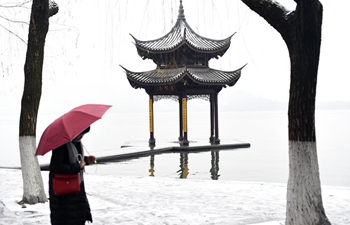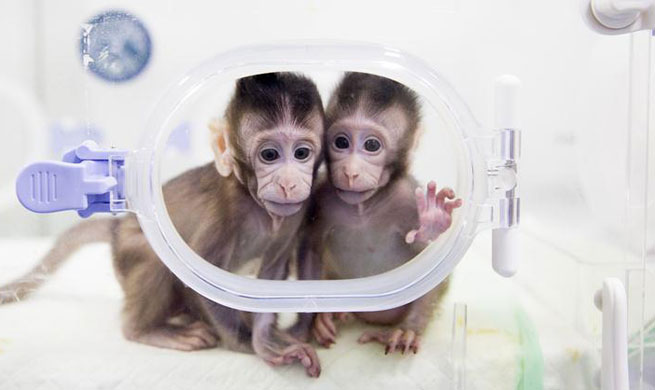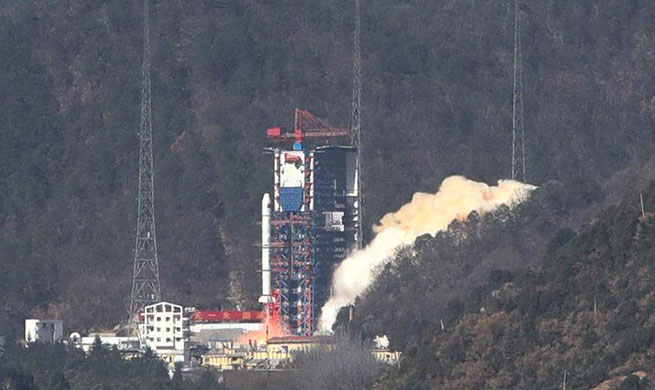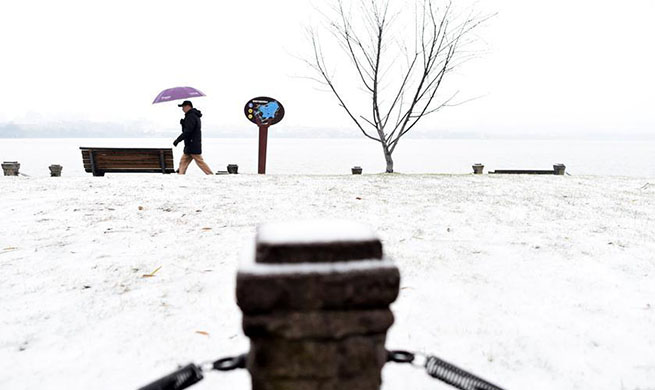SHENYANG, Jan. 25 (Xinhua) -- Ni Zhijun runs the largest mature-vinegar making company in Kazuo County, an area in northeast China well-known for its vinegar.
"A lot of people brave the biting cold to buy vinegar from my company these days," Ni said. "Spring Festival is in the air, and they need to prepare vinegar as gifts for friends and relatives."
Kazuo's vinegar has come a long way. More than 300 years ago, an artisan escaped famine from north China's Shanxi Province, and settled in Kazuo, where the artisan began making vinegar using techniques from Shanxi.
The special flavor of the vinegar became so popular locally that in 1689 the local imperial governor presented it as a gift to Emperor Kangxi. The emperor loved it and mature vinegar from Kazuo became a household name in China, according to Tong Tao, curator of the local cultural museum.
"Some local villagers still make mature vinegar themselves," Tong said.
In Ni's factory, a 25-meter-long, 2-meter-wide fermentation tank is filled with fermented sorghum, and the air is filled with aroma of alcohol.
"Before making mature vinegar, you must make alcohol," Ni said.
According to Ni, sorghum is crushed before being boiled and saccharified. Then there is alcohol fermentation, acetic fermentation and after-ripening.
"We add bran and sorghum husk after alcohol fermentation, before proceeding to more than 20 days of acetic fermentation," Ni said.
The raw vinegar is then stored in big black tanks. It is exposed in the sun in the summer to reach a higher concentration.
"In winter we often have to take a thin layer of ice from the top of the vinegar to make the vinegar more pure," he said.
After the process, the refined vinegar reaches top class in terms of concentration, consistency and amino acid.
The good stuff is not cheap. In stores in Kazuo, a bottle of top-class mature vinegar can reach as much as 198 yuan (31 U.S. dollars), in comparison with several to a dozen or so yuan for a bottle of average product.
The company can churn out 30,000 tonnes of mature vinegar annually, in addition to 2,000 tonnes of soy sauce, 1,000 tonnes of soybean paste and 1,000 tonnes of alcohol. More than 40 vinegar varieties, including seasoning and vinegar drinks, have sprung up.
Annual sales revenue in the company exceeded 54 million yuan last year, 10 times higher than in 2005.
As the company expands, sales of Ni's vinegar have reached places beyond the northeast.

















